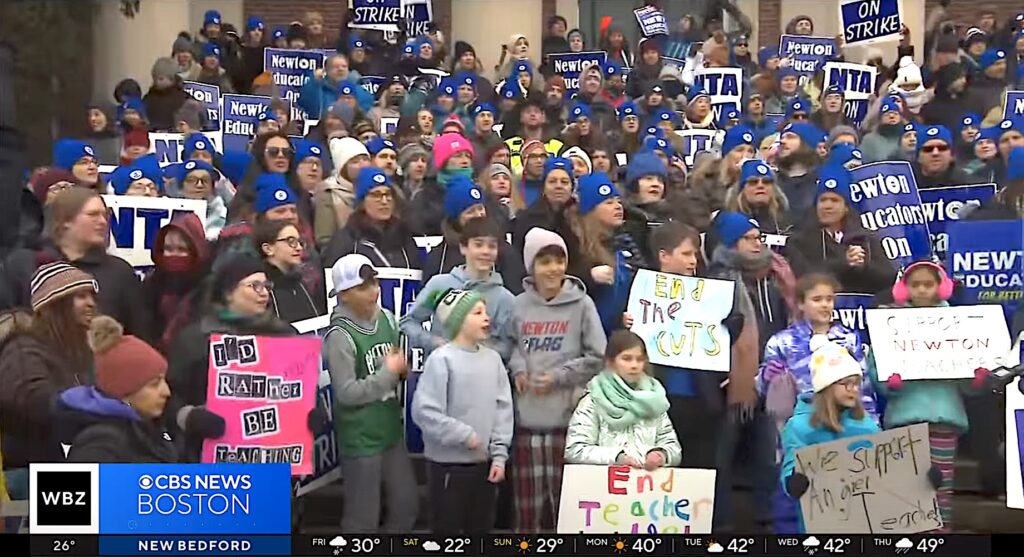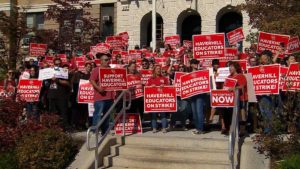Massachusetts teachers’ union faces $375,000 fine and more fallout for illegal strike
The Newton Teachers Association is facing a penalty up to $375,000 for its illegal strike, Mayor Ruthanne Fuller announced Monday.
The strike began on Jan. 19 with the NTA demanding higher wages,…

The Newton Teachers Association is facing a penalty up to $375,000 for its illegal strike, Mayor Ruthanne Fuller announced Monday.
The strike began on Jan. 19 with the NTA demanding higher wages, more support staff and paid family leave for all educators.
Teacher strikes are illegal in Massachusetts, as well as in dozens of other states.
Fuller announced Monday that a superior court judge granted the city a motion to fine the union up to $375,000 if the strike doesn’t end by Thursday evening.
“If the NTA’s noncompliance continues after Thursday night,” the ruling continues, “a hearing will take place on Friday, January 26 at noon to ‘discuss a more meaningful approach to ensuring compliance with the law.’”
“With every passing day the fines are doubling for the union and with every passing day the stress and worry seem to be doubling as well for our community,” Fuller added Wednesday. “Our children need to be in school.”
Policy experts explain that the risky maneuver is common for teachers’ unions.
“The price of an illegal strike to a union is often negated by the financial gains these unions will see by taking a percentage of increased teacher wages,” Ashley Varner, vice president of communication and federal affairs at the Freedom Foundation, previously told The Lion.
“Strikes like this show exactly why unions got into this business to begin with,” she added. “It isn’t to improve education or to help children. It’s money.”
Noted teachers’ union critic Corey DeAngelis also accused the NTA of using education as a bargaining chip to their own political ends.
And the Newton school board explained that the union’s demands could wreak havoc on future budgets – to the detriment of the teachers it claims to represent.
“Not only would the demands of the union consume our ability to improve programs or services, we believe we would have to lay off approximately 60 educators within a year and an equal amount over the following five years,” the board said after the strike began.



